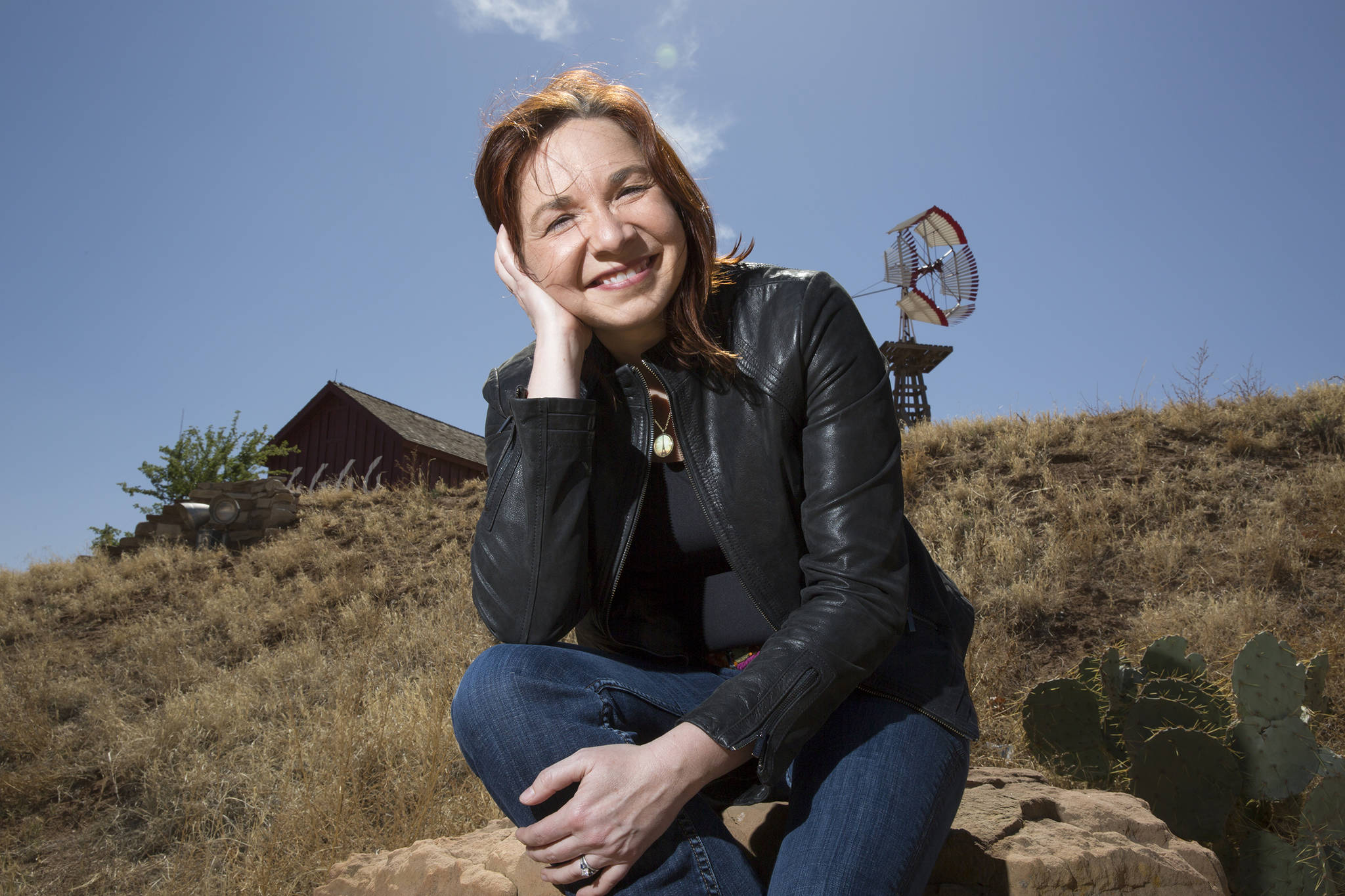Katharine Hayhoe asked her Juneau audience how a Christian, like herself, could truly say they were pro-life if they ignored the damage being done by climate change.
“I’m a climate scientist because I’m a Christian,” she said.
Hayhoe is an atmospheric scientist, a professor of political science at Texas Tech, and a climate advocate. She is also an evangelical Christian and often gives talks focused on viewing the environment through the lens of faith.
That was the topic of her lecture Friday evening at Chapel by the Lake Presbyterian Church overlooking Auke Lake. The event was hosted by Alaska Interfaith Power and Light, the local affiliate of a national group of inter-denominational and inter-faith organizations committed to climate advocacy.
Hayhoe’s lecture was just one of a number of climate change-themed events that took place in Juneau this week, meant to coincide with the International Forum of Sovereign Wealth Funds meeting that took place at Centennial Hall.
Many sovereign wealth funds — state-owned investment accounts — have significant investments in fossil fuels and the forum featured many speakers who don’t necessarily view climate change as a threat.
Gov. Mike Dunleavy said at a forum event Thursday that climate change might even be good for Alaska because it would open up new business opportunities for the state.
Hayhoe took a decidedly different view of the matter and said climate change adversely affected the society’s most vulnerable whom Christians have a duty to serve.
“When you are living on two dollars a day, you are the most vulnerable to the effects of climate change,” she said.
She gave her audience a number of Biblical passages, (such as Psalm 72, “May grain abound throughout the land; on the tops of the hills may it sway) which she said demonstrated a Christian’s duty to protect the Earth.
“We are often told in church that man was created in God’s image to have dominion over the Earth,” she said. “But dominion is not domination.”
She said the Hebrew word found in Genesis 1:26 typically translated as “dominion,” meant not to exploit but, “to exercise skilled mastery with respect.”
At the end of her lecture, Hayhoe gave the audience a number of religious organizations that were also approaching climate change issues through the lens of caring for God’s Earth.
She urged the audience to look at things they could do in their lives, and organizations they could donate to. Among the organizations she mentioned was Juneau Carbon Offset Fund, which works locally to raise money for cleaner technologies.
Hayhoe is often asked to speak about the relationship between faith and climate change because those two subjects are often seen as at odds with one another.
But according to Hayhoe, that is largely an American phenomenon.
“I’m Canadian, I had never met anybody who thought climate change wasn’t real until I moved to the States,” she told the Empire after her lecture.
Outside the U.S. she said, evangelicals were at the forefront of climate change advocacy. She cited the World Evangelical Alliance which has openly advocated for climate change action.
“There’s organizations all over Europe and Canada that are really just out front of this and then you come to the U.S., and it’s like, ‘What happened? Is this not the same Bible? What are people reading?’”
This was the result of a concerted effort on the part of the fossil fuel industry, Hayhoe said, that funneled vast amounts of money into religious organizations.
“If you go to Wikipedia and you look at the world’s richest corporations, you have Walmart, and then you have petroleum, petroleum, energy, energy…For them maintaining our dependence on fossil fuels for as long as possible is financially beneficial,” she said.
Hayhoe said these companies made a deliberate effort to generate support in the Christian community by funding religious causes and making fossil fuels a religious issue.
“They came to the U.S., many are based in the U.S., they said how can we maintain dependence on fossil fuels as long as possible? By getting some people to support us by us supporting them,” Hayhoe said. “It is not an accident, it didn’t happen by chance, people sat down, thought about it and used us.”
• Contact reporter Peter Segall at 523-2228 or psegall@juneauempire.com.

